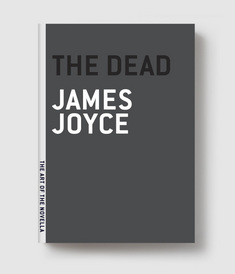June 17, 2013
Controversy erupts as “undiscovered” Joyce manuscript is published just in time for Bloomsday
by Claire Kelley
Ithys Press, a small publisher in Ireland, is publishing a collection of sketches, fables, and fragments by James Joyce under the title Finn’s Hotel to coincide with this year’s Bloomsday celebration of Ulysses on June 16th. The book has been arranged and edited by Joyce enthusiast Danis Rose, according to The Guardian.
As reported on this blog, the copyright for books by James Joyce expired at the end of 2011, which has allowed this publishing project to go forward without approval from the Joyce estate and Stephen Joyce, Joyce’s grandson and “venomous literary executor.” Before finding Ithys Press, Rose claimed copyright of the Finn’s Hotel manuscript, and worked with the National Library of Ireland to publish the work online for free.
Just this week in the Guardian, Rose tells the story of how he had tried to publish Finn’s Hotel in 1992 and had a deal for the book with Penguin that ended badly:
While Rose claims that “Finn’s Hotel is to Finnegans Wake as one of the Dubliners stories are to Ulysses,” a number of prominent Joyce scholars disagree. Dr John Nash of Durham University tells the Guardian that the book is “not ‘undiscovered’ (even ignoring the obvious fallacy of this claim) … Rose thought he had ‘discovered’ that they were to be a separate set of short stories, based on some correspondence between Joyce and Harriet Shaw Weaver … but that notion is not generally credited.”“Basically, all hell broke loose … The Joyce scholars, with notable exceptions, were characteristically aghast, like a consternation of moles caught in a bright light. The Joyce estate, though it had already given me permission to publish the edition, was riled and publishers were spooked.”
Meanwhile professor Derek Attridge at the University of York expressed reservations about
“foisting a ‘newly discovered’ work by Joyce on an unsuspecting public… Rose’s theory, which has not, to my knowledge, been accepted by any other Joyce scholar, is that these pieces were intended as a collection of stories entitled Finn’s Hotel. Unless Rose has now come up with some substantial new evidence that this ‘work’ is not an editor’s fantasy, publication can only distort and damage Joyce’s reputation.”
This certainly isn’t the first time that a Joyce manuscript edited by Danis Rose has caused controversy. In 1997, Picador published Ulysses: A Reader’s Edition, which was edited by Rose who took what many saw as outrageous liberties in “correcting,” copyediting, and modernizing the language of Ulysses. The book was called an “ill-starred project ” in a review in the New York Review of Books. That review also explains Rose’s first attempt to publish Finn’s Hotel:
Then, in October 1992, Rose announced, in his words, “the greatest literary find of the century”—seven new short stories by James Joyce. These were neither “new” nor “short stories.” What Rose called Finn’s Hotel was seven crude drafts already transcribed and published by David Hayman in 1963 in A First-Draft Version of Finnegans Wake. Viking-Penguin, just liberated from Gabler’s Ulysses, withdrew Finn’s Hotel at a considerable loss before a single copy was sold.
When Hayman read reports in 1992 that Rose had “discovered” a lost manuscript, he was shocked to realize that it was the same material he had published 30 years earlier. “He is seriously misrepresenting what he has,” Dr. Hayman told The New York Times in 1992. “Everyone I’ve spoken to in the field has been astonished. This is a hoax, whether intentional or not.”
Claire Kelley is the Director of Library and Academic Marketing at Melville House.

